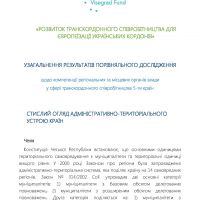Report published by CoR on the Public Consultations on the Future of CBC
Policy-making | 03 May 2021
Policy-making | 03 May 2021
As CESCI reported before, the European Committee of the Regions (CoR) launched a public consultation on the joint vision of the long-term future of cross-border cooperation in the European Union. The consultation has been open between December 2020 and the 14th of March 2021 based on which a report has been published in the CoR’s website and is available here.
The report analyses the 338 responses from regional and local administrations, associations and businesses from nearly all the Member States as well as other non-EU countries in order to evaluate to what extent different border regions are affected by obstacles and sets out recommendations for the future of cross-border cooperation based on the participants’ opinions.
Key points of the report:
Based on the feedback received the CoR will adopt a Resolution at the July 2021 plenary. The Resolution will present concrete proposals for the future of cross-border cooperation and represent the official contribution of the CoR, and the European Cross-Border Citizens’ Alliance, members to the Conference on the Future of Europe. You can read more about the Cross-Border Citizens’ Alliance here: https://cor.europa.eu/en/engage/Pages/cross-border-alliance.aspx

 Summary in Ukrainian of the Comparative analysis on the competencies of regional...
Summary in Ukrainian of the Comparative analysis on the competencies of regional...